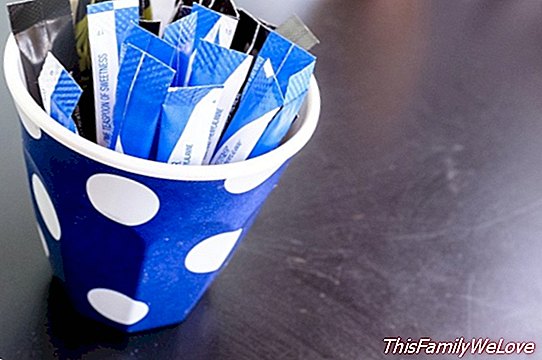A new study links the increase in cases of obesity with sweeteners

The obesity It is one of the issues that most affect today's new generations. Cases of children with weight problems have increased in recent years, a growth that has also been accompanied by the expansion of dietary products and including sweeteners such as saccharin among its ingredients.
How can the number of cases of obesity if they have also increased the amount of food without sugar? This is the question that has been asked in the George Washington University in Washington D.C., who has tried to find out if there is a relationship between these products and the rise of children with weight problems.
Sweetener growth
In 1999, only 8% of children consumed low-calorie sweeteners, says Allison Sylvetsky, principal author of this investigation. This figure has grown a lot in the last 17 years since at present this percentage stands at 25.1%. How is it possible that children with obesity have also grown?
To find the answer, these researchers went to National Survey of Health and Nutrition Evaluation of EE. UU, where they obtained the data of almost 17,000 people. These data were shared with those of the previous edition of the aforementioned survey. Currently, 1 in 4 children reported taking sweeteners regularly in their diet.
Sweeteners that get fat?
"The findings are important, especially for children, because some studies suggest a link between low-calorie sweeteners and obesity, diabetes and other health problems, "says Sylvetsky, who alludes to the fact that this is not the first time that research points to these products lead to weight gain of those who consume them.
Why do you fatten a product low in calories and sugar? This could be due to intensely sweet foods provoke desire of their consumers more of them, or that people who drink a diet soda think that they have already avoided enough calories to afford a second ration. This leads to the ultimate consumption of more than the recommended amount.
It is a mistake to think that those foods ligth or that contain sweeteners do not fatten. In the case of the first products they receive this denomination because they contain a lower level of calories and sugars than the original. In the second they continue to contain other elements that also influence the weight gain of those who consume them. That is, they are less harmful, but not harmless as many people think.
In addition, it also warns of risk of products with artificially created sugar and that are present in many foods on the market. "Drink water instead of soda, sweeten a yogurt with a little fruit", recommends the main author of this research who adds that a fruit is always better snack for children than another snack-type product.
Damián Montero




